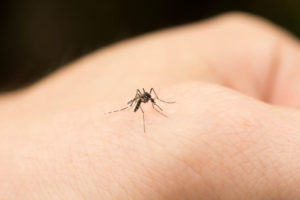There is nothing more refreshing on a warm summer day than an ice-filled cold beverage, but before you host your next summer gathering, make sure that the ice you serve is clean and free of harmful bacteria.
While ice is rarely considered to be the source of trouble, there are good reasons to take a second look at how ice is dispensed in your own home. You may think most bacteria wouldn’t survive the icy conditions of a freezer. But they can. Bacteria and viruses such as listeria, E-coli and salmonella can live in freezing temperatures, meaning they may be alive in your ice cubes. With proper precautions however, you can eliminate the risk of these contaminants existing in the ice you serve.
Here are some tips:
- Change Your Filter – Most ice makers in freezers use a secondary water filter to stop particles from contaminating the ice. To keep your ice clean, change the freezer’s water filter as frequently as the manufacturer recommends, about every six months.
- Regular Cleaning – Don’t forget to defrost and deep clean your freezer at least once a year. As a rule of thumb, if the ice buildup in your freezer is a quarter-inch or thicker, then it’s time to defrost and clean it.
- Use Ice Regularly – The slight melting and refreezing of cubes can allow pathogens to take hold. To avoid this, remove the ice storage bin from the freezer and dump any clumps into the sink. Since inactivity causes ice clumps to form, the easiest solution is to use the ice maker more frequently.
- Organize Your Freezer – Make sure frozen foods are properly sealed or double-wrapped and avoid having them come into direct contact with ice in trays or bins. Also label all food with a use-by date and remove all expired foods from your freezer.
- Don’t Use Your Hands – While all of the above tips are useful, the fact is that the most common way to spread germs is by placing unwashed hands in an ice container. Instead of using your hands, use a designated scooper or other tool to handle ice.
It is important to note that while the existence of contaminants in your ice might be disturbing to learn, the health risks associated with it is fairly minimal to the average immune system and the transmission of viruses are rare. Those more at risk are pregnant women, children, and people with a compromised immune system.
Regardless, it is always a good idea to take the proper precautions to reduce your chances of getting yourself or your guests sick.
All content of this newsletter is intended for general information purposes only and is not intended or implied to be a substitute for professional medical advice, diagnosis or treatment. Please consult a medical professional before adopting any of the suggestions on this page. You must never disregard professional medical advice or delay seeking medical treatment based upon any content of this newsletter. PROMPTLY CONSULT YOUR PHYSICIAN OR CALL 911 IF YOU BELIEVE YOU HAVE A MEDICAL EMERGENCY.








